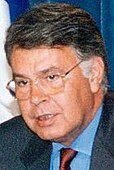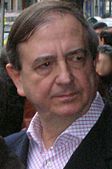| |||||||||||||||||||||||||||||||||||||||||||||||||||||||||||||||||||||||||||||||||||||||||||||||||||||
All 350 seats in the Congress of Deputies and 208 (of 257) seats in the Senate 176 seats needed for a majority in the Congress of Deputies | |||||||||||||||||||||||||||||||||||||||||||||||||||||||||||||||||||||||||||||||||||||||||||||||||||||
|---|---|---|---|---|---|---|---|---|---|---|---|---|---|---|---|---|---|---|---|---|---|---|---|---|---|---|---|---|---|---|---|---|---|---|---|---|---|---|---|---|---|---|---|---|---|---|---|---|---|---|---|---|---|---|---|---|---|---|---|---|---|---|---|---|---|---|---|---|---|---|---|---|---|---|---|---|---|---|---|---|---|---|---|---|---|---|---|---|---|---|---|---|---|---|---|---|---|---|---|---|---|
| Opinion polls | |||||||||||||||||||||||||||||||||||||||||||||||||||||||||||||||||||||||||||||||||||||||||||||||||||||
| Registered | 32,531,833 | ||||||||||||||||||||||||||||||||||||||||||||||||||||||||||||||||||||||||||||||||||||||||||||||||||||
| Turnout | 25,172,058 (77.4%) | ||||||||||||||||||||||||||||||||||||||||||||||||||||||||||||||||||||||||||||||||||||||||||||||||||||
| |||||||||||||||||||||||||||||||||||||||||||||||||||||||||||||||||||||||||||||||||||||||||||||||||||||
| |||||||||||||||||||||||||||||||||||||||||||||||||||||||||||||||||||||||||||||||||||||||||||||||||||||
The 1996 Spanish general election was held on Sunday, 3 March 1996, to elect the 6th Cortes Generales of the Kingdom of Spain. All 350 seats in the Congress of Deputies were up for election, as well as 208 of 257 seats in the Senate.
Ever since forming a minority government after its victory in the 1993 election, the Spanish Socialist Workers' Party (PSOE) had been rocked by the unveiling of a string of corruption scandals, including the party's illegal financing, misuse of public funds to pay for undeclared bonuses to party officials and allegations of state terrorism (GAL. The 1996 election was triggered following the withdrawal of parliamentary support from Convergence and Union (CiU) to the Socialist minority government of Felipe González in mid 1995.
The election resulted in the first PSOE defeat in a general election since 1979, but predictions of a landslide of the opposition José María Aznar's People's Party (PP) failed to materialize. The PP had been widely expected to make gains after resounding wins in the 1994 European Parliament election and 1995 local and regional elections, with polls suggesting Aznar winning an outright overall majority or coming short of it by few seats would be the most likely scenario. Instead, the election turned into the closest result between the two major parties in the Spanish democratic period to date; a PSOE comeback, fueled by a strong 77.4% voter turnout, the highest scored ever since, left the PP leading by just 1.2 percentage points and 290,000 votes, falling 20 seats short of an absolute majority. Julio Anguita's United Left (IU) also failed to meet expectations, despite scoring their best overall result in a general election since the Communist Party of Spain (PCE)'s results in 1979.
At 156 seats, this would be the worst performance for a winning party in the democratic period until the PP's result in the 2015 election. As a consequence of the election result, Aznar was forced to tone down his attacks to Catalan and Basque nationalists in order to garner their support for his investiture. After two months of negotiations, agreements were reached with CiU, the Basque Nationalist Party (PNV) and Canarian Coalition (CC), enabling for José María Aznar to become prime minister of a centre-right minority cabinet, marking the end of 13+1⁄2 years of Socialist government.
Cite error: There are <ref group=lower-alpha> tags or {{efn}} templates on this page, but the references will not show without a {{reflist|group=lower-alpha}} template or {{notelist}} template (see the help page).








